First Winter Land Rover Velebit Raid Will Take Place From December 17 to 19
November 29, 2021 - Another Land Rover fan event is coming, as the first winter Land Rover Velebit Raid will take place from December 17 to 19, and participants will be able to enjoy not only good company but also spectacular landscapes typical of the Velebit and Paklenica National Parks, as well as the rich history of Lika-Senj County.
The first winter Land Rover Velebit Raid abounds in rich contents. Participants will see two National Parks, Northern Velebit and Paklenica, springs and mills on the river Gacka, will visit two Museums, visit JNA bunkers, see the locations where the film Winnetou was shot, ride on a masterpiece of architectural heritage, the Master Road from 1832, enjoy the homemade food of authentic Lika in the 100-year-old inn Godača and authentic sub-Velebit stone houses with open fireplaces.
They will drive 300 km of wild and untouched nature, and there will be some night driving as well. The weather forecast will be followed and if there's snow to be expected, then driving will go around the mountain in the direction of Gospić - Gračac - Obrovac - Paklenica.
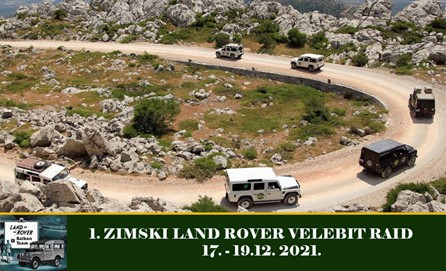
The point of it all is the promotion of lesser-known tourist locations, socializing, driving, meeting, and connecting owners and fans of Land Rover vehicles. There is no doubt that these are just the beginning and that the future will bring many more similar trips across the Balkans, but also those to other continents.
The Land Rover Balkan team and Total Croatia News invite you to support their love for good and adventurous driving as well as to promote lesser-known tourist locations. The itinerary is as shown below:
FRIDAY (December 17th)
- From 12:00 - Gathering of participants in the village of Sinac (8 km from Otočac) in the 101-year-old inn "Godača"
- Excursion to Tonković and Majer's spring and mills on the river Gacka (distance 3 and 7 km)
SATURDAY (December 18th) - 200 km
- 09:00 start from Sinac towards the Velebit village of Krasno 800 m above sea level. and a visit to the House of Velebit - 23 km
- 11:00 h Northern Velebit National Park - Krasno - Štirovača - drive through a pine forest on an asphalt road - 34 km
- 13:00 h - Middle Velebit - Off road, stone tunnels, serpentines, sea views, Štirovača - Baške Oštarije 926 m asl - 40 км
-15: 00 h Baške Oštarije - Gospić - Sv. Rock - 60 km
- 16:30 - South Velebit - Master Road (built in 1832, architectural heritage, off road, Tulove grede - location from the movie Winnetou, magnificent sea views - Paklenica - 40 km
18:30 - 19:00 - Hotel Rajna in Paklenica with a member of the group Marin Marasović
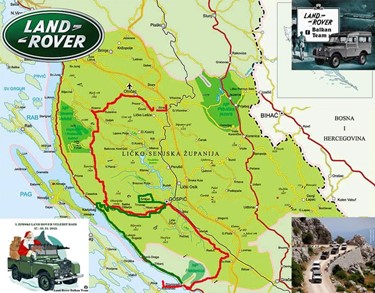
SUNDAY (December 19th) - 100 km
- 10:00 - NP Paklenica (entrance 3 euros), Underground town JNA bunkers built from 1950 -1953 or cafe by the sea
- 12:00 - Start Paklenica - Karlobag - Baške Oštarije - 66 km
- 14.00 - Lunch in the hostel Baška Oštarija
- 15.30 - Start of Baška Oštarija - Smiljan - Nikola Tesla Museum - 25 km
Those interested can find more information about the first winter Land Rover Velebit Raid through the organizers' email (This email address is being protected from spambots. You need JavaScript enabled to view it.) and telephone number (+091 766 5479).
For more about the National Parks of Velebit and Paklenica, be sure to check Total Croatia's guide to Croatian National Parks here. Now in your language!
For more on lifestyle, follow TCN's dedicated page.
Discovering Authentic Croatia's Secrets With Seoski Tourism
November 4, 2021 – Village tourism or countryside tourism - Seoski tourism in Croatia - offers authentic, traditional experiences. Aleksandra Kuratko, secretary of Udruga ruralnog turizma Hrvatske (Croatian Rural Tourism Association) tells us more about it, and their work to help facilitate it
Croatia's visitor offer is evolving and expanding. There are exciting aspects of authentic Croatia to be discovered. Away from the beach, villages inland often look remarkably similar to how they did one hundred years ago. There, crops are grown and produce made in ways passed down through generations of families. And, in some lucky instances, these family farmers are willing to open their doors, invite you inside and show you how they live.
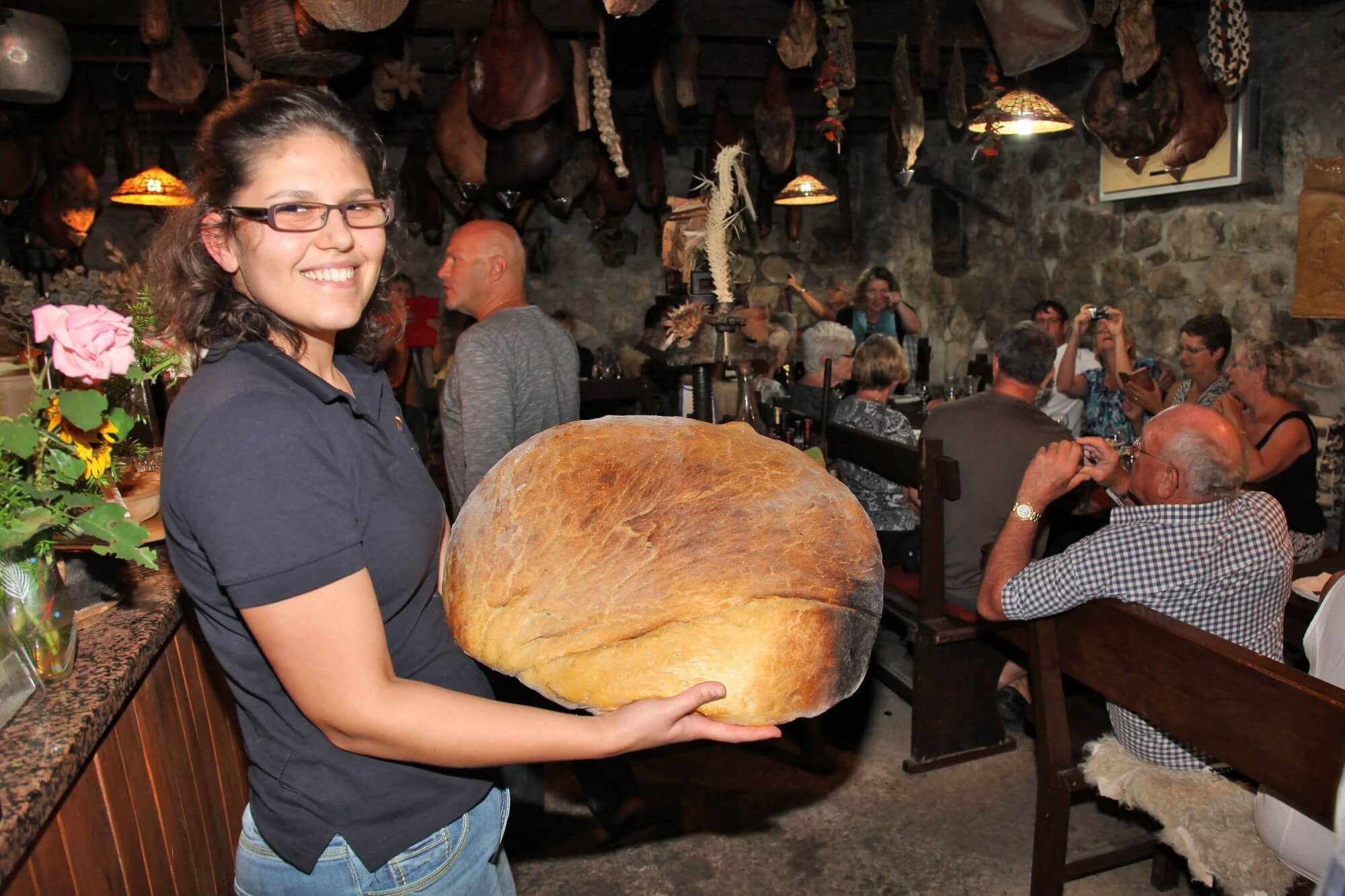 Bread from the peka at Agroturizam Antunović on Pelješac
Bread from the peka at Agroturizam Antunović on Pelješac
Seoski Tourism – translated as either village tourism or countryside tourism – is just that. Family farms that offer hospitality. These are some of the most homely and most welcoming accommodation experiences you can have in Croatia. Offering sights and sounds, tastes and flavours that you can't find anywhere else, visits or stays in Seoski Tourism places have long been loved by locals for weekend breaks or holidays outside peak summer. But, increasingly, these authentic Croatia experiences are being discovered by international visitors.
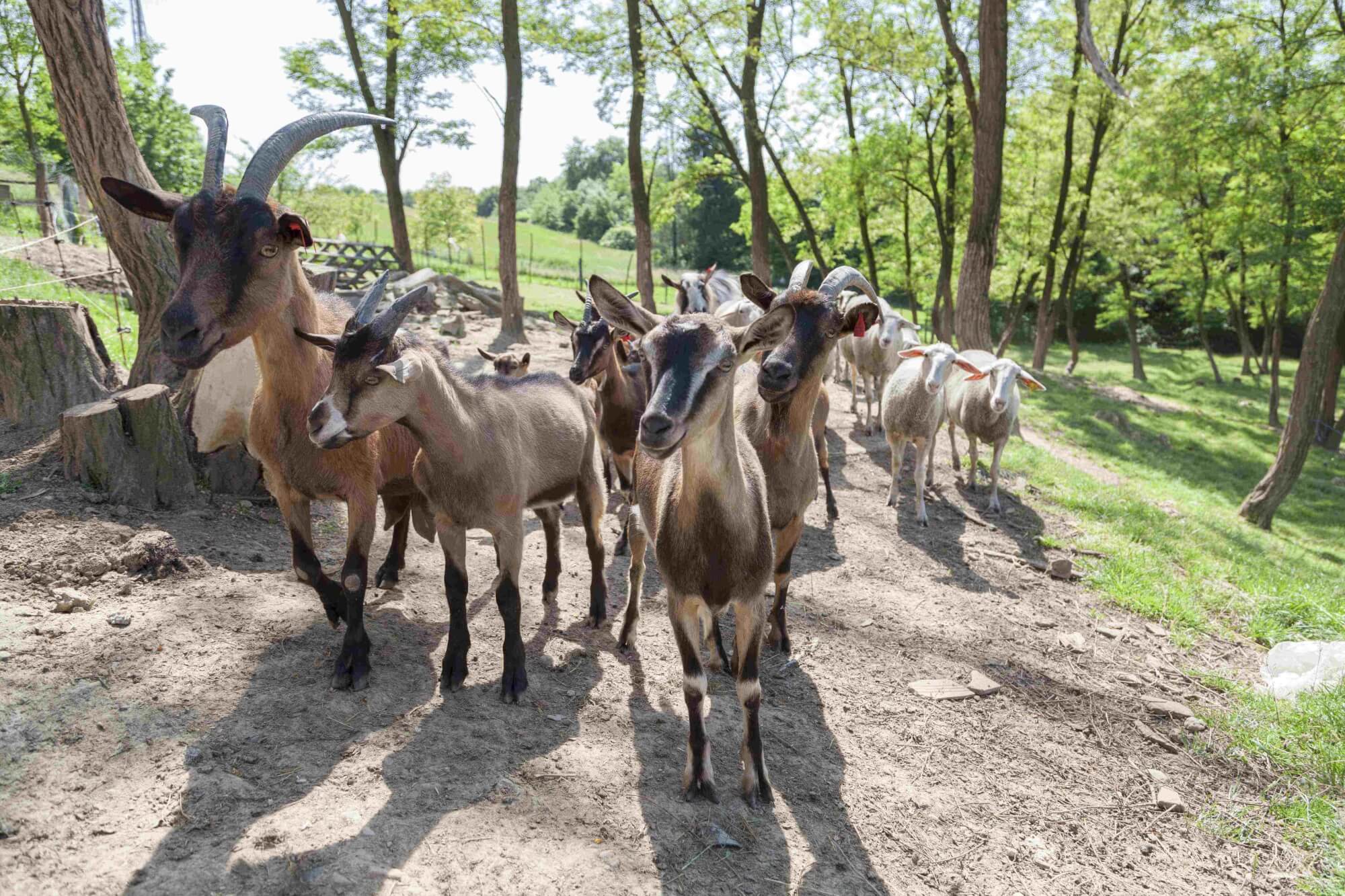 Moslavina goats at Kezele family farm © Davor Konjikušić
Moslavina goats at Kezele family farm © Davor Konjikušić
One institution trying to facilitate the growth in interest is Udruga ruralnog turizma Hrvatske - Croatian Rural Tourism Association. Since it was formed in 2016, they have tried to bring together Croatia's family farm hosts, to promote them and educate them, and to build bridges between these independents and tourist boards, tourist agencies, educators and even the wider world outside Croatia.
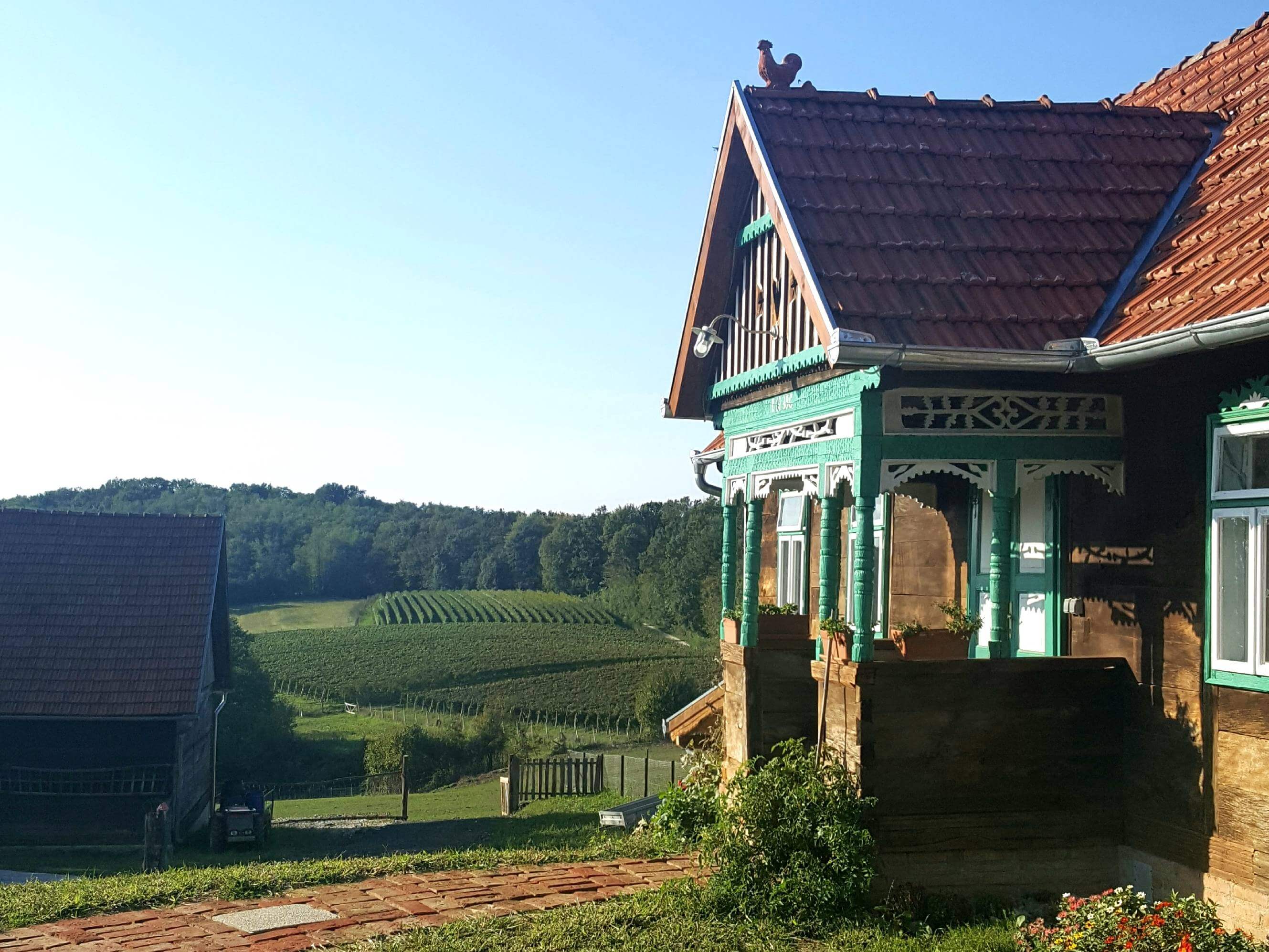 Seoski turizam Kezele in Šumećani, on the border of Zagreb County and Bjelovar Bilogora County © Davor Konjikušić
Seoski turizam Kezele in Šumećani, on the border of Zagreb County and Bjelovar Bilogora County © Davor Konjikušić
Based in Ivanić-Grad, Zagreb County, the Croatian Rural Tourism Association is currently touring the length and breadth of the country, holding workshops with as many Seoski Tourism family farms that will come. And if the farmwork doesn't allow them free time, then they can attend Croatian Rural Tourism Association workshops online.
On the eve of the association's online Seoski Tourism workshops for Central Croatia and Slavonia, TCN interviewed Aleksandra Kuratko, secretary of Udruga ruralnog turizma Hrvatske, to find out more about Seoski Tourism in Croatia.
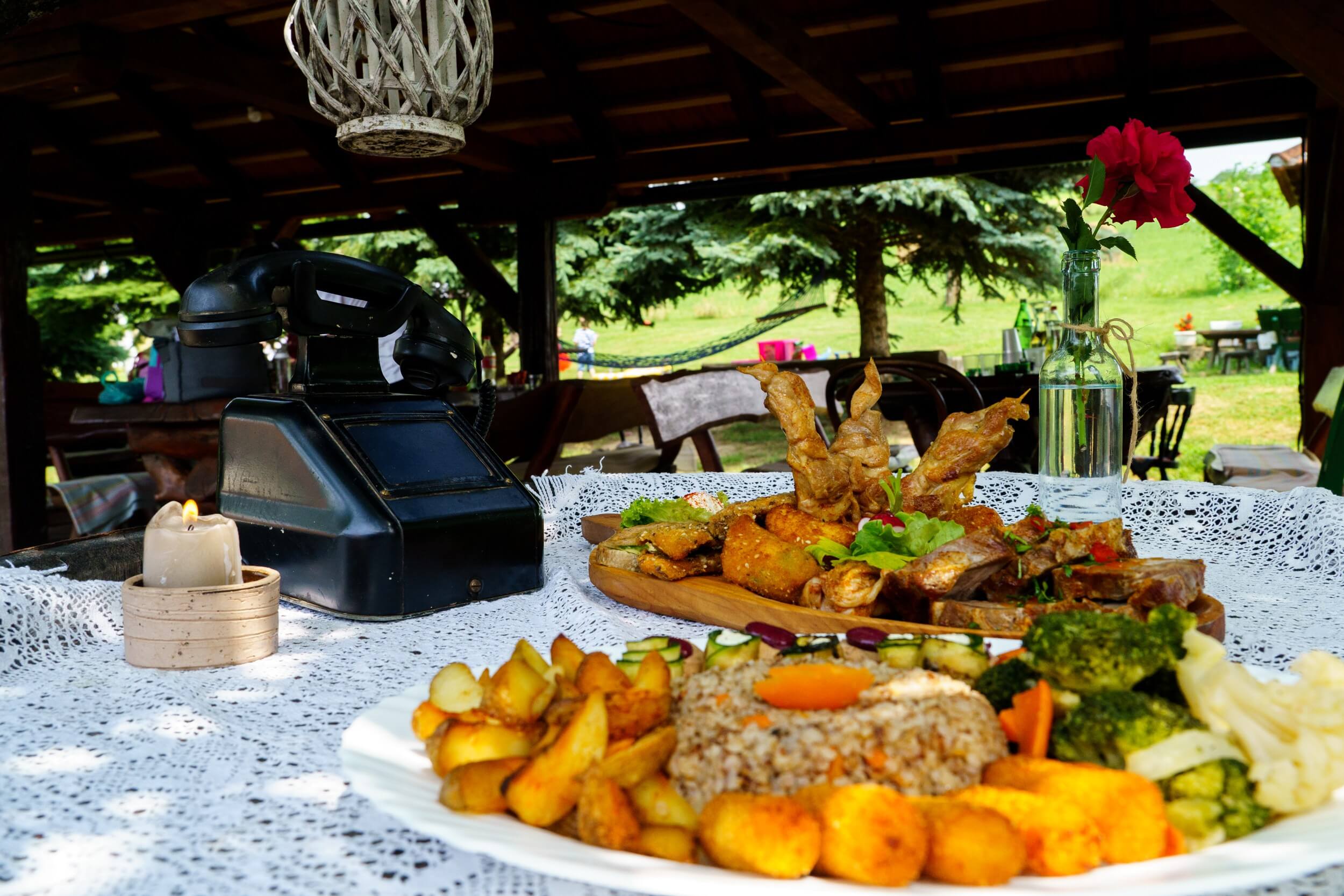 Prigorje specialties at Rakić family farm
Prigorje specialties at Rakić family farm
My name is Aleksandra Kuratko and I am secretary of Udruga ruralnog turizma Hrvatske. As an association, we are 5 years old.
We have 35 members, most of whom are service providers in what we call Seoski Tourism. We also have several tourist boards and two educational institutions as members.
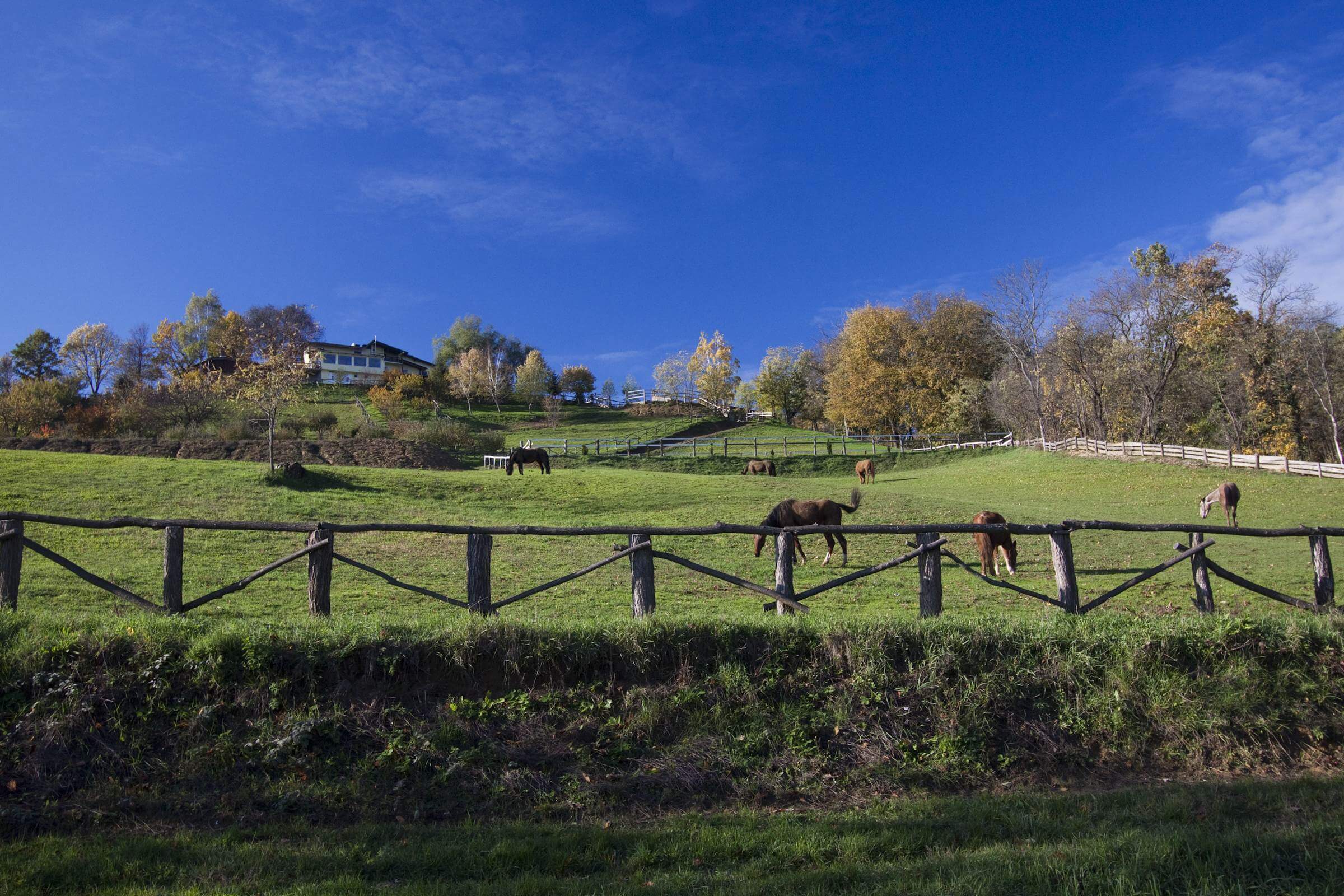 Bilogora horses in autumn at Agroturizam Na malenom brijegu © Vladimir Vlajinić
Bilogora horses in autumn at Agroturizam Na malenom brijegu © Vladimir Vlajinić
Seoski tourism is not quite the same as rural tourism, because rural tourism is many different types of tourism that happen in rural areas. Seoski tourism - which you might translate as village tourism - is quite specific. We assemble people who work in agriculture and who, at the same time, are also offering hospitality. In English, you might call them Farm Stays. Or Agro-tourism – a merging of agriculture and tourism.
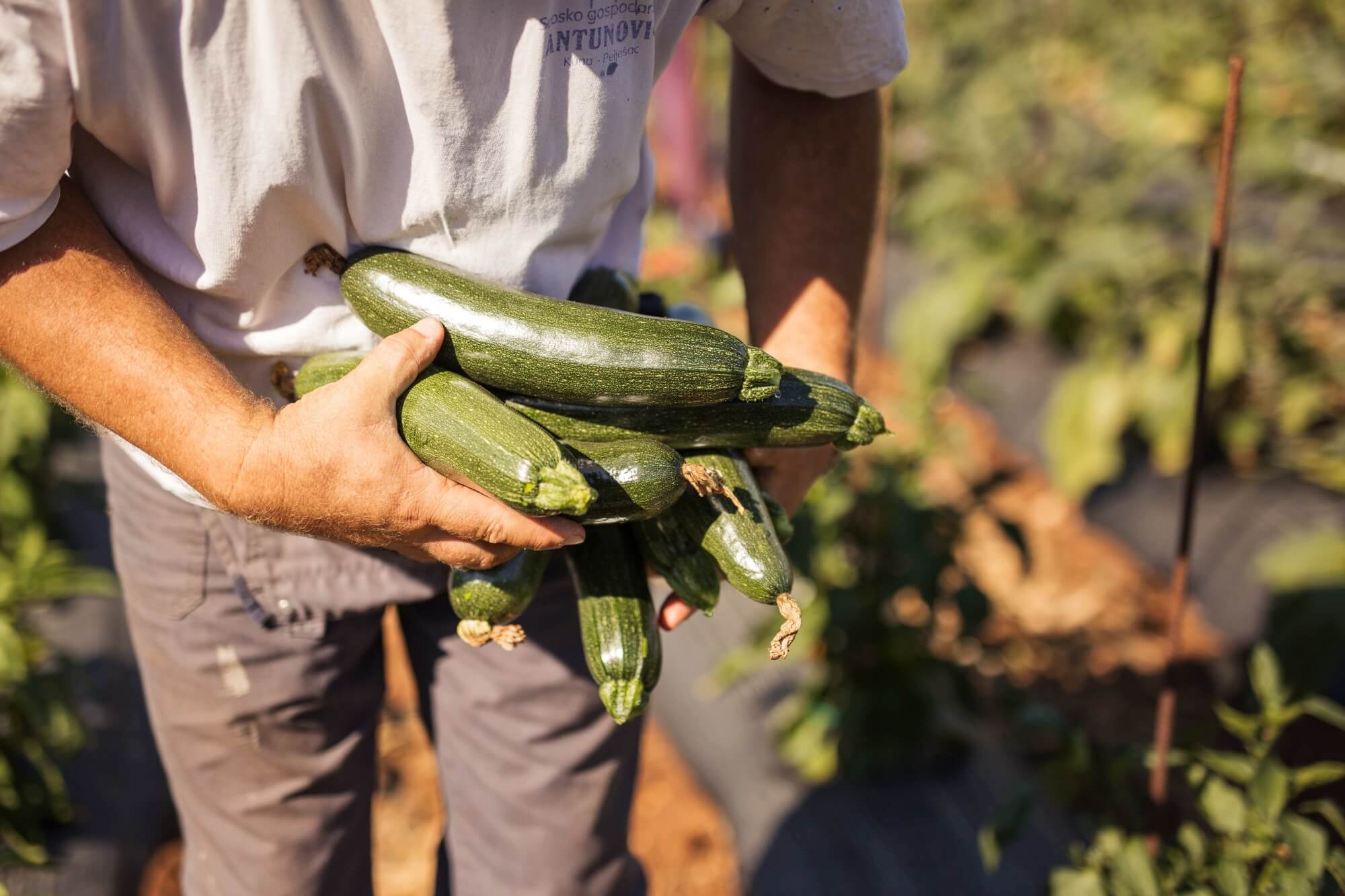 Fresh vegetables at Agroturizam Antunović on Pelješac
Fresh vegetables at Agroturizam Antunović on Pelješac
People who work on agricultural estates often take care of local cultural heritage. For example, they might maintain and renew traditional wooden or stone houses. Many also have etno collections, in which they preserve different objects from their region. Some of these objects might have been used in agriculture and households hundreds of years ago. So, they are preserving the cultural heritage of Croatian villages. This is what we call material cultural heritage. But, there's another kind.
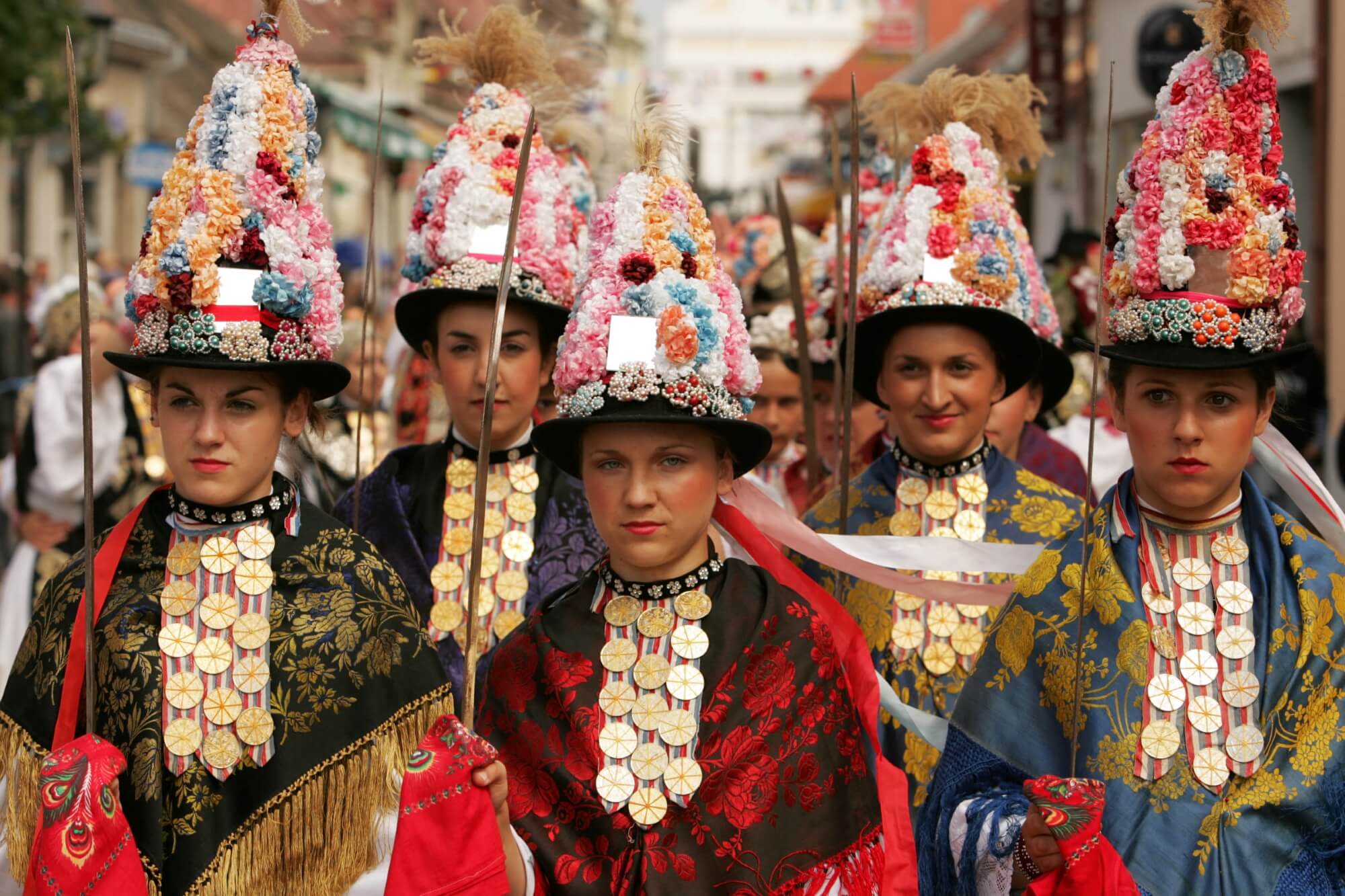 Cultural heritage preserved in one Slavonian village © Mario Romulić
Cultural heritage preserved in one Slavonian village © Mario Romulić
Non-material cultural heritage is also a part. That might be preserving old recipes of traditional, regionally-specific dishes. Or, it might be showcasing the songs and dance of local music.
We are currently running a project which is supported by the Croatian Ministry of Tourism and Sports in which we hold 37 Seoski Tourism workshops in the field all over Croatia. There will also be around 15 online workshops. The workshops are aimed at colleagues who currently operate in Seoski Tourism – they work in agriculture and offer hospitality. Also invited are local tourist boards and local action groups.
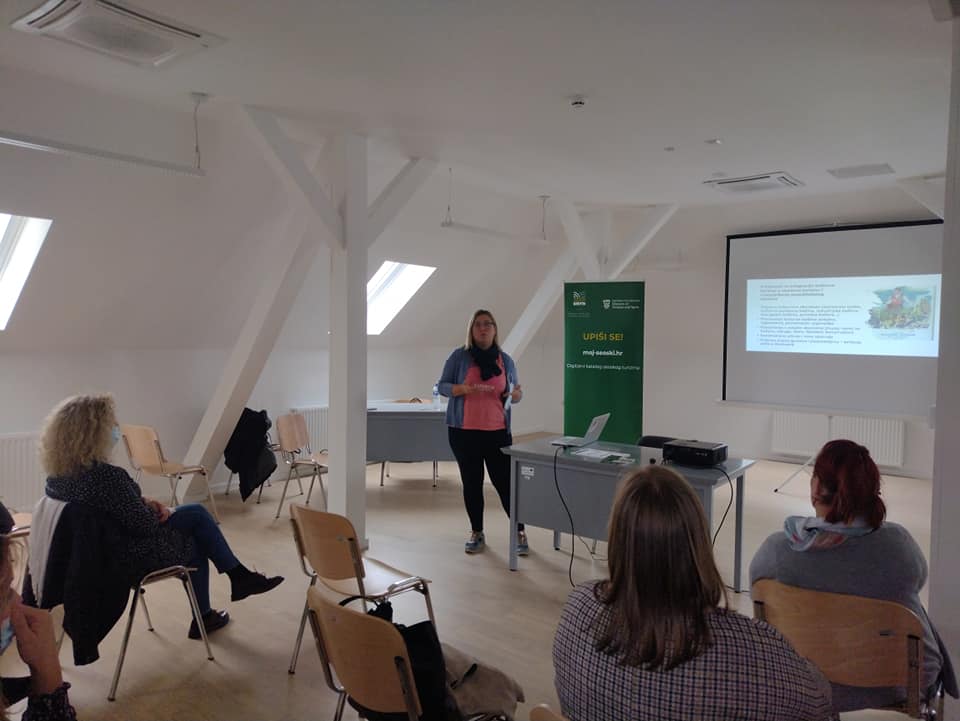 Photo from URTH workshop in Slatina
Photo from URTH workshop in Slatina
So far, we conducted 20 workshops in the regions of Central Croatia, Slavonia and Baranja, and Podunavlje. From next week until the end of the year, we will conduct the workshops in Istria, Kvarner, Lika and Dalmatia. Some service providers were not able to attend earlier workshops, because of work commitments of Covid. So, we decided to also offer access to the workshops online. Tomorrow is our first online workshop for Central Croatia and on Friday it's the online workshop for Slavonia.
These workshops are interactive discussions between our association, service providers and all other stakeholders. We discuss the legislative framework, which can be extremely complex. We talk about new trends in tourism for the post-pandemic era. We also discuss the importance of integrating cultural heritage in digital promotion.
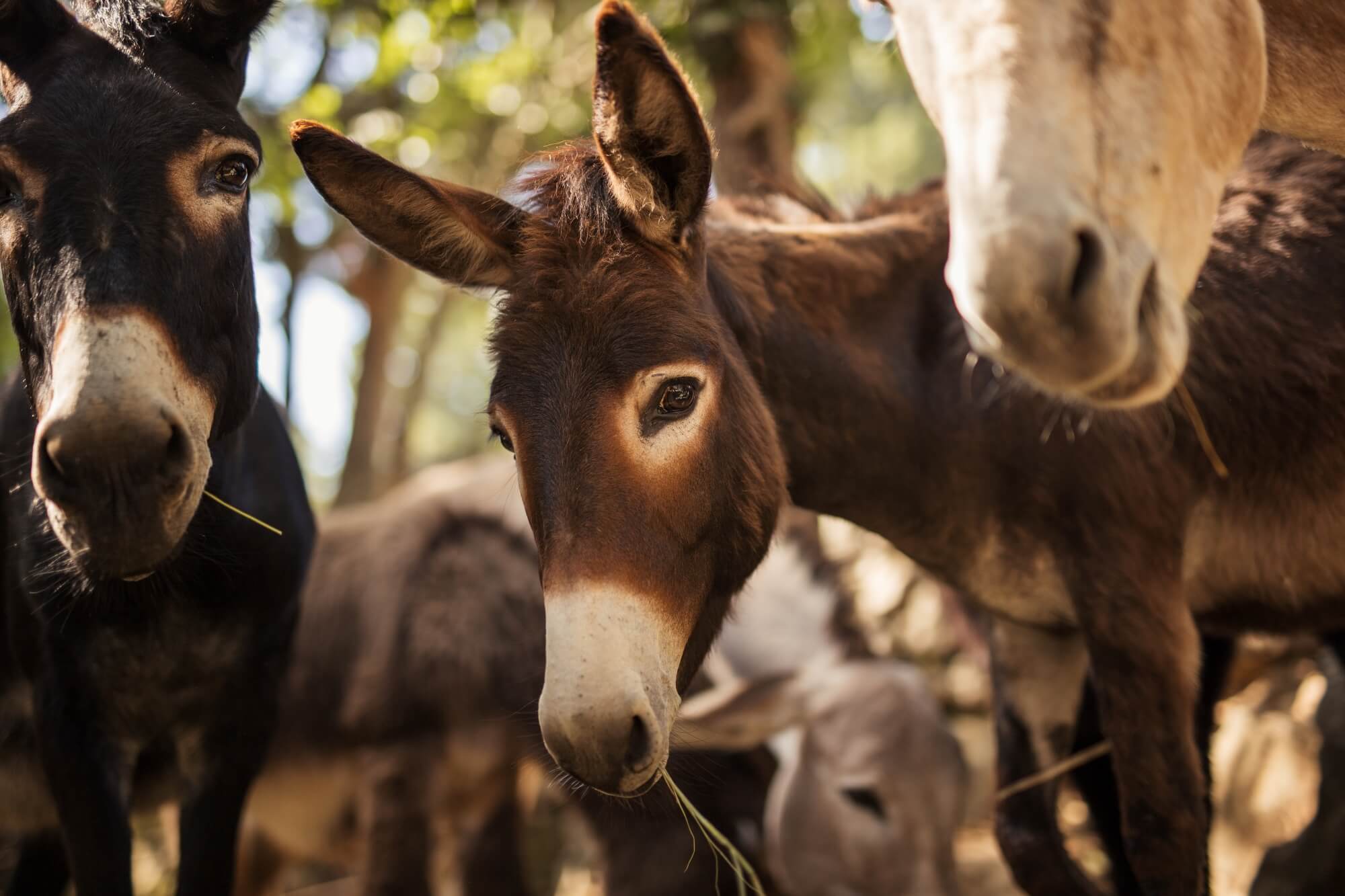 Donkey farm at Agroturizam Antunović on Pelješac
Donkey farm at Agroturizam Antunović on Pelješac
For the legislative framework, we have initiated the formation of a working group for the development of Seoski Tourism, which is now operating in the Croatian Ministry of Tourism and Sports. So, at the workshops, we ask if anyone is having issues. We collect the responses and address them in the working group.
Part of the workshop is the presentation of a new web application of Seoski Tourism, which we have developed with Croatian Ministry of Tourism and Sports. It has two purposes. One is to create a digital catalogue of Croatian Seoski Tourism. You can see region by region some of the Seoski Tourism options – currently around 40, those who have already enrolled.
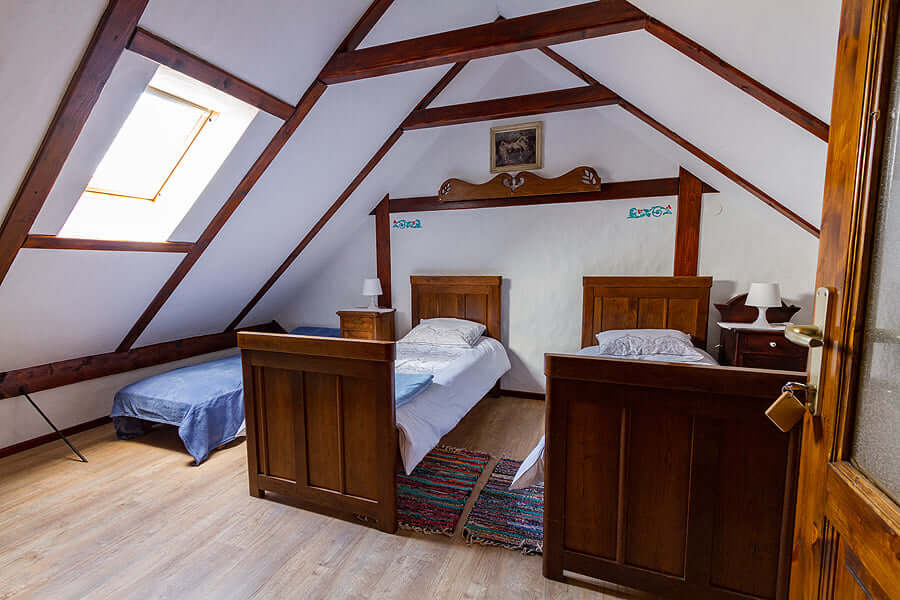 Podravina Etno rooms at Zlatni klas Otrovanec
Podravina Etno rooms at Zlatni klas Otrovanec
A version of the app is currently available on the website of the National Tourist Board. But, they are building a new website. The forthcoming version of the catalogue will likely be more user-friendly with many more functions and options. On the new website, Croatia's Seoski Tourism options will be detailed in many different languages. It should be a great resource not only for tourists but for travel agencies, journalists like you and for educational institutions. That's the reason we are devoting time in our workshops to encourage Seoski Tourism providers to enroll. We are just at the beginning of the process.
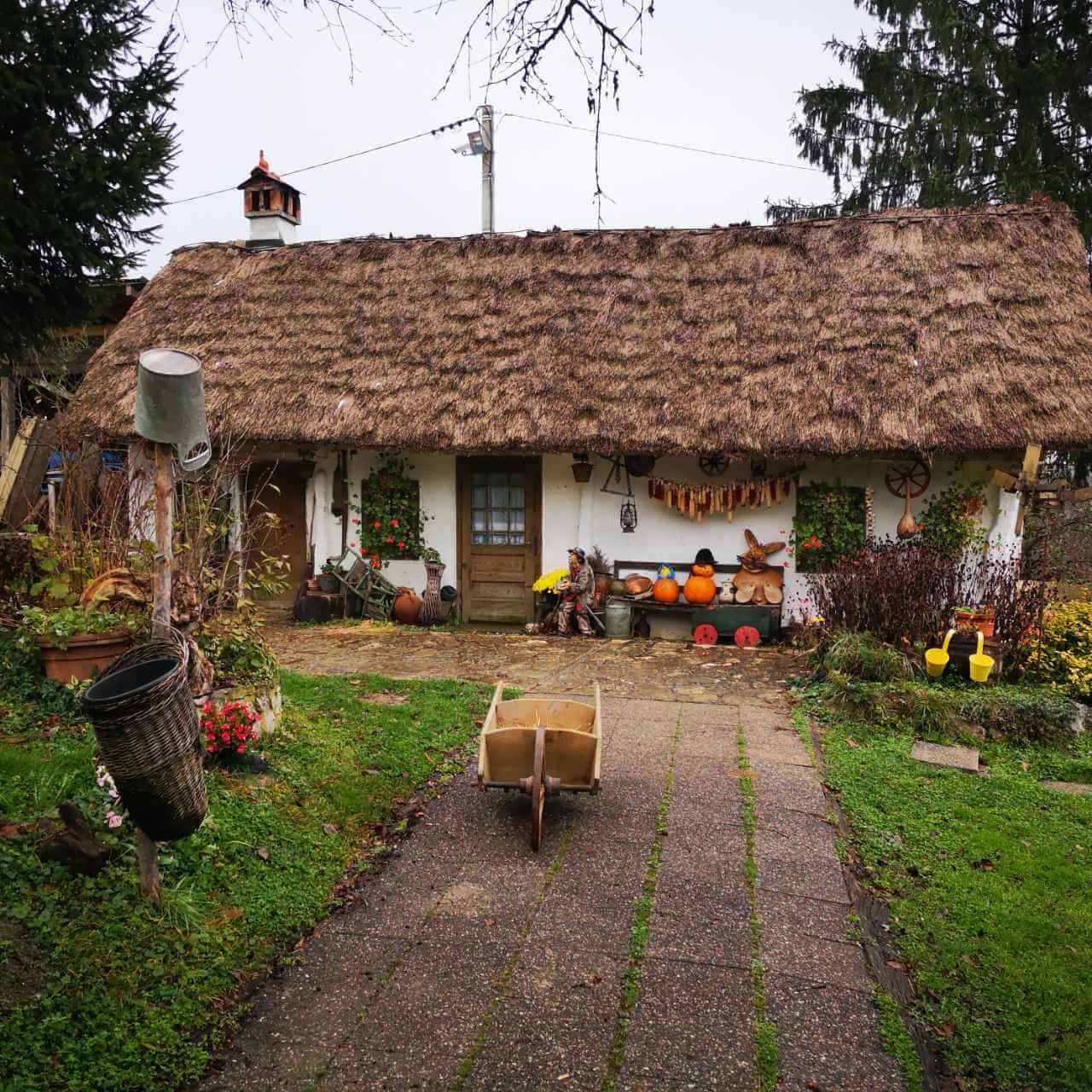 Grešna pilnica in Zagorje © Jasna Podboj
Grešna pilnica in Zagorje © Jasna Podboj
The second purpose of the app is to collect information about the service providers. This info will be used by our working group when defining a Croatian model of Seoski Tourism. So far, we have taken examples from Slovenia, Italy and other countries that are successful with Seoski Tourism. But, these models were entered into our legislative system without fully considering our distinct business and cultural environments. That is now about to change.
We are very happy that, following many years of partially successful advocacy, there is now political will at a ministerial level to really shape things up, to change the laws and regulations in order to facilitate Seoski Tourism. We want to encourage more Seoski Tourism, not to have people from agriculture being turned away because of the difficulty of the process and bureaucracy.
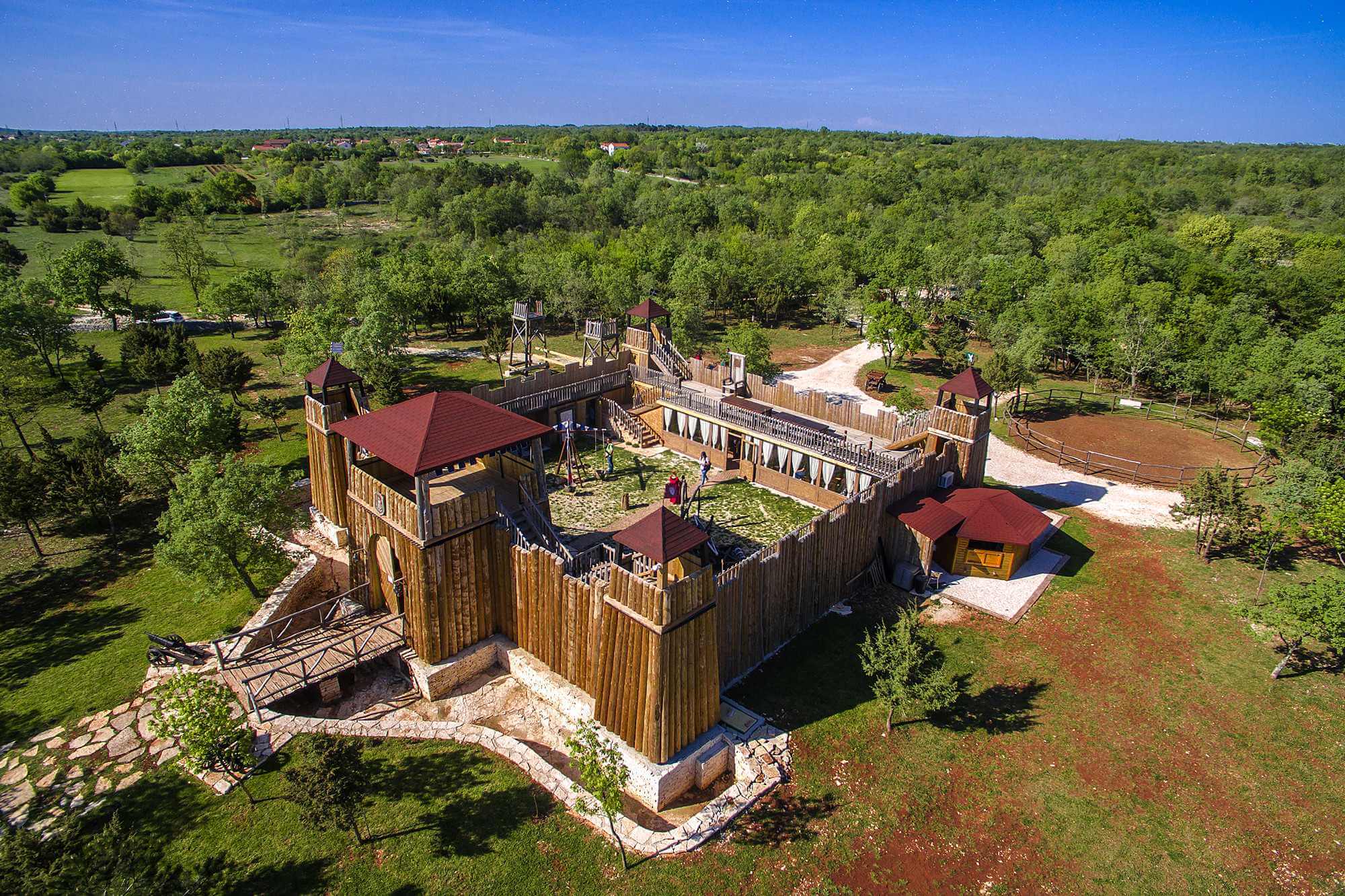 Medieval Theme Park San Michael © Silvia Otočan
Medieval Theme Park San Michael © Silvia Otočan
You said part of the workshops will focus on new trends. What are some of these?
Research has been done by a working group that is developing a new tourism strategy for Croatia. It's called Strategy for Sustainable Tourism to 2030. Under the auspices of this group, a number of research fields have been analysed.
The collected data shows that a huge percentage of tourists are now more inclined to eat locally grown and healthy food. They want to spend their time on estates that are run in accordance with ecological principles. So, they really care about issues like how waste is disposed of etc. They also pay a lot of attention to culture. They are curious to learn exactly how we are living, how we are working and how we produce things. They want to learn about our society and culture. And, importantly, they really care about how they spend their money. Above all, they want to spend money in areas that can help support local communities.
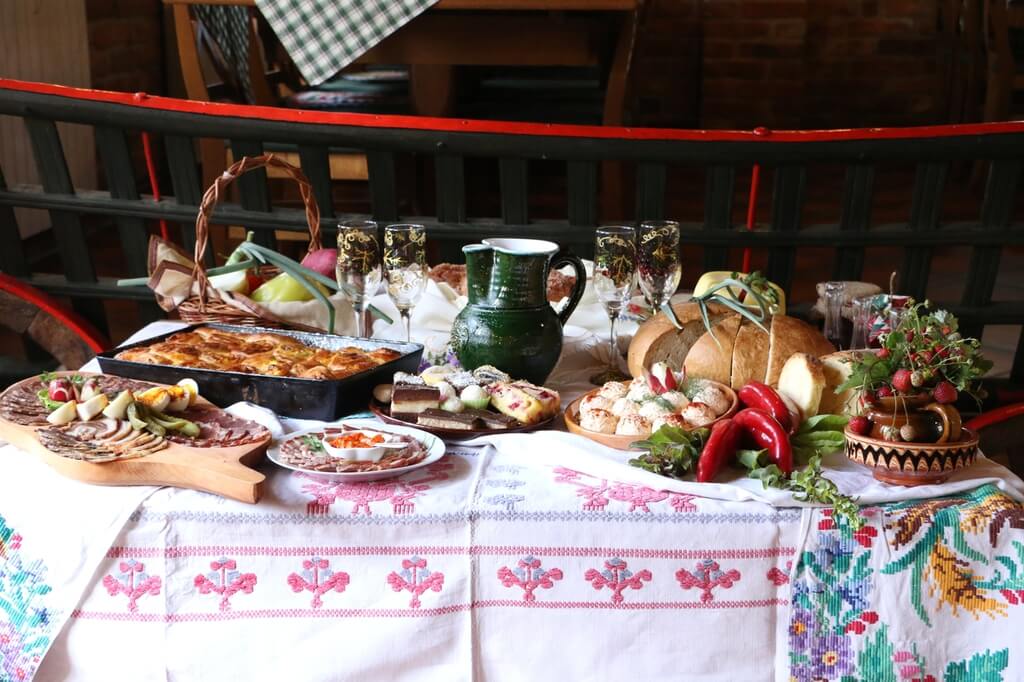 Prigorje Breakfast at Rakić Family Farm
Prigorje Breakfast at Rakić Family Farm
For us, this is really important. Because Seoski Tourism answers these demands to an incredibly high level. We do produce local, healthy food. Not only on the agricultural estates where you can experience Seoski Tourism, but also from their neighbours who just do agriculture. We are concerned with ecology, we protect cultural heritage and the money spent in Seoski Tourism stays in local communities, where it has very beneficial effects.
In the digital promotion part of the workshops we are trying to persuade people about the importance of their online presence. Basically, these days, if you're not online, it's almost like you don't exist. So, we try to explain the importance of having good-quality photos, short videos and a regular online presence.
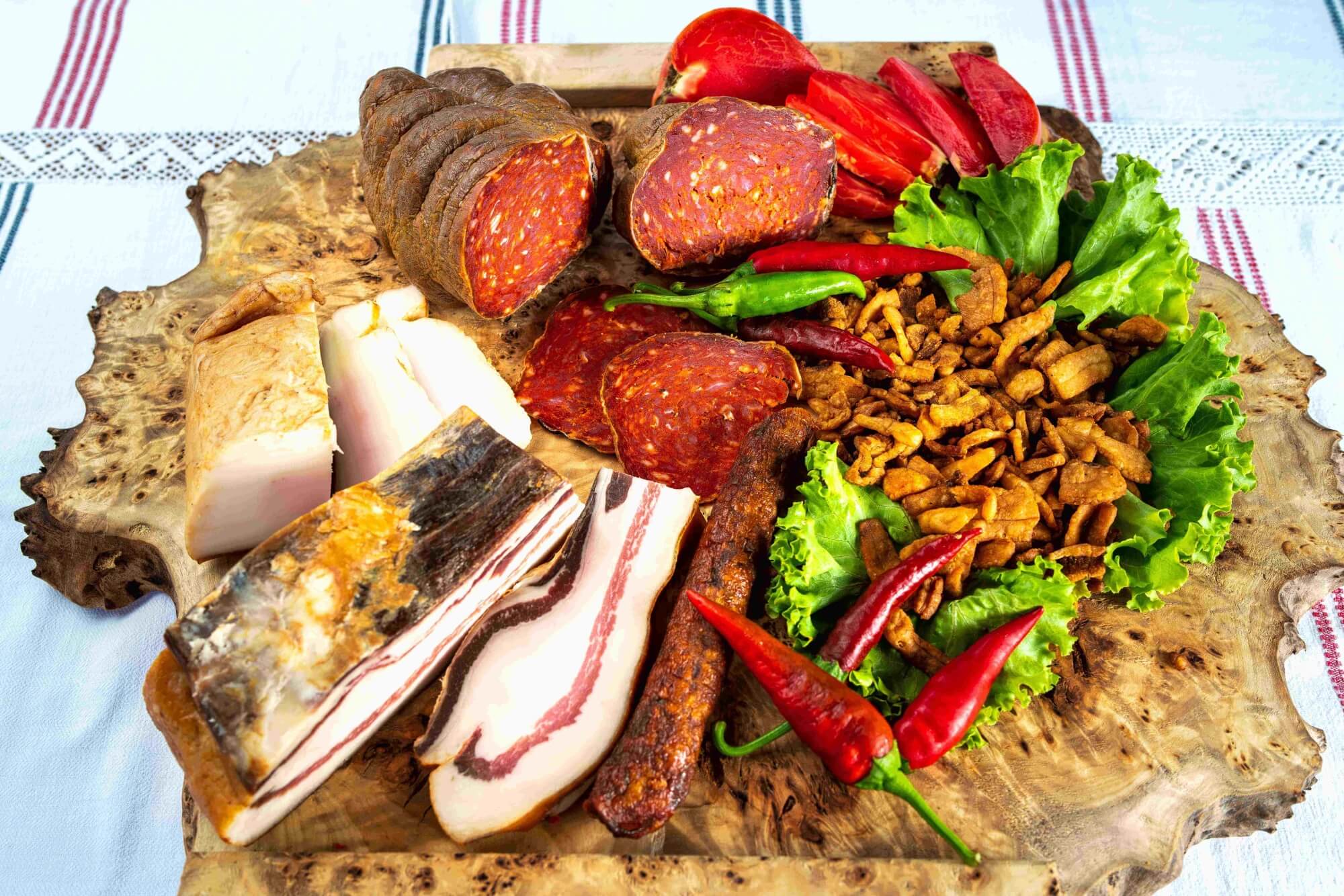 Kulen, čvarci and other specialties at Baranjska kuća © Denis Despot
Kulen, čvarci and other specialties at Baranjska kuća © Denis Despot
That's interesting. In some cases, it might be like two different worlds colliding - people who work in a traditional industry and a traditional environment having to adapt to a very modern way of operating. There's also another potential collision when providers learn of the expectations within modern tourism. Because these people can no longer just work in agriculture. To operate in Seoski Tourism, you're also very much expected to also be a host.
Yes. All of our current service providers who are successful within Seoski Tourism are also great hosts. It's essential. You can see it in almost all of the reviews for this kind of tourism. Guests come for the food and drinks and surroundings, yes. But, what they value the most, what they remember the most, is the host part of the experience. On the estates of Croatian Seoski Tourism, guests are welcomed like family. Across all of Croatian tourism we are expected to be good hosts. It's part of our reputation and the reason why many people come here from all over the world. In Seoski Tourism, it is vital we live up to those expectations.
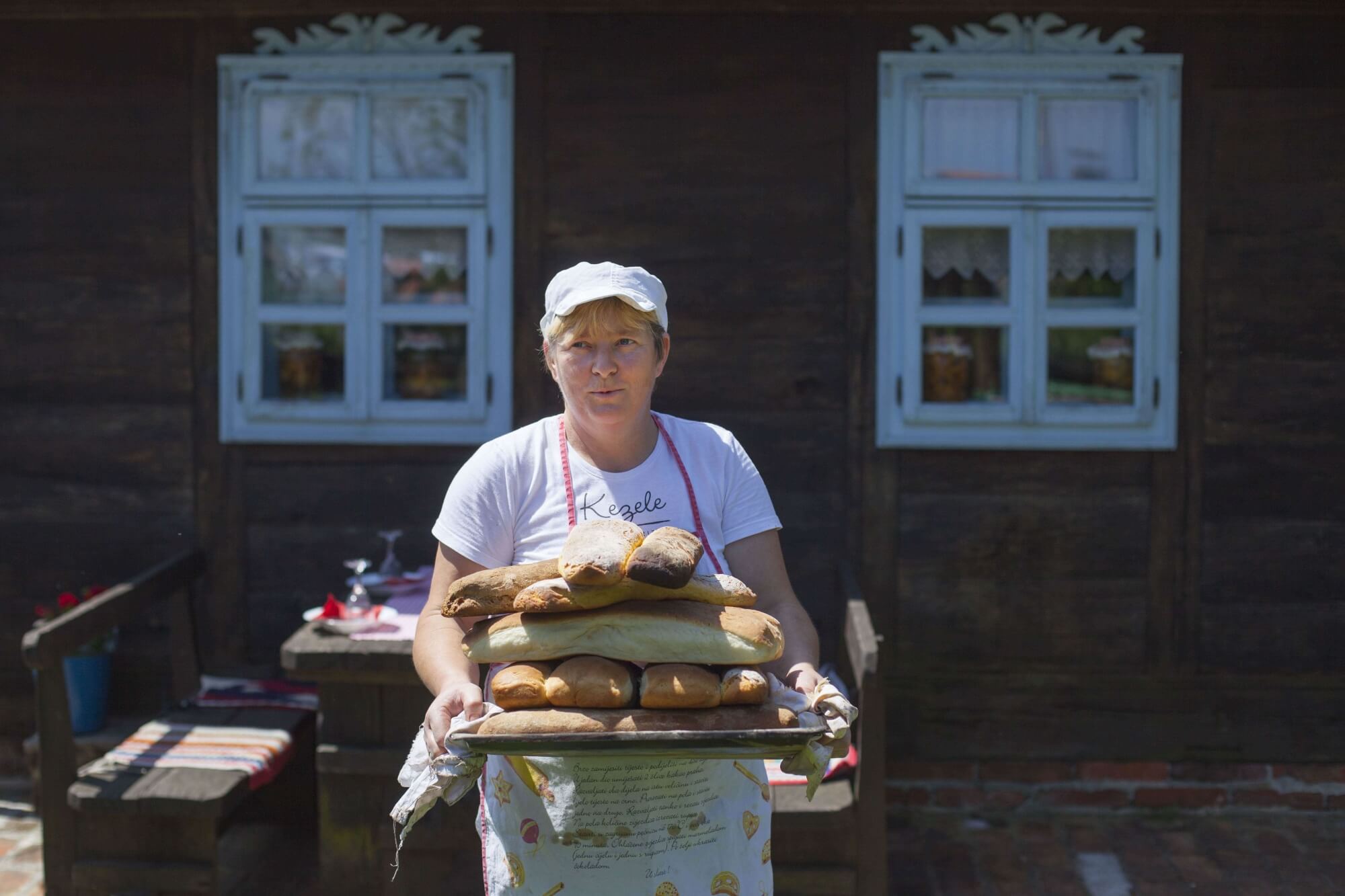 Kezele family farm © Davor Konjikušić
Kezele family farm © Davor Konjikušić
Another aspect of this, which is a more recently-observed element, is that visitors often want an insight into the actual lives, even the personalities of their hosts. They want not only to taste the homemade sausages you make, but they also want to know how you do it, where you do it, how you learned to do that. When they go to Spain, they want to know how the people there make their wine. And, when they come to Croatia, they want to learn how we do it here.
So, all in all, those of us in Seoski Tourism are really busy. We are in agriculture, yes, but we are also in tourism and we are also online. With this more recently-observed aspect, we will need to try and devote even more time to our hosting. It can be difficult to balance the demands on your time. But, in our workshops, we are trying to persuade people to talk more about themselves, their lives, their cultural heritage. And, if there isn't time to do everything themselves, then to involve different and often younger generations of the family. Sometimes within the hosting or alternatively just with the online promotion and presence.
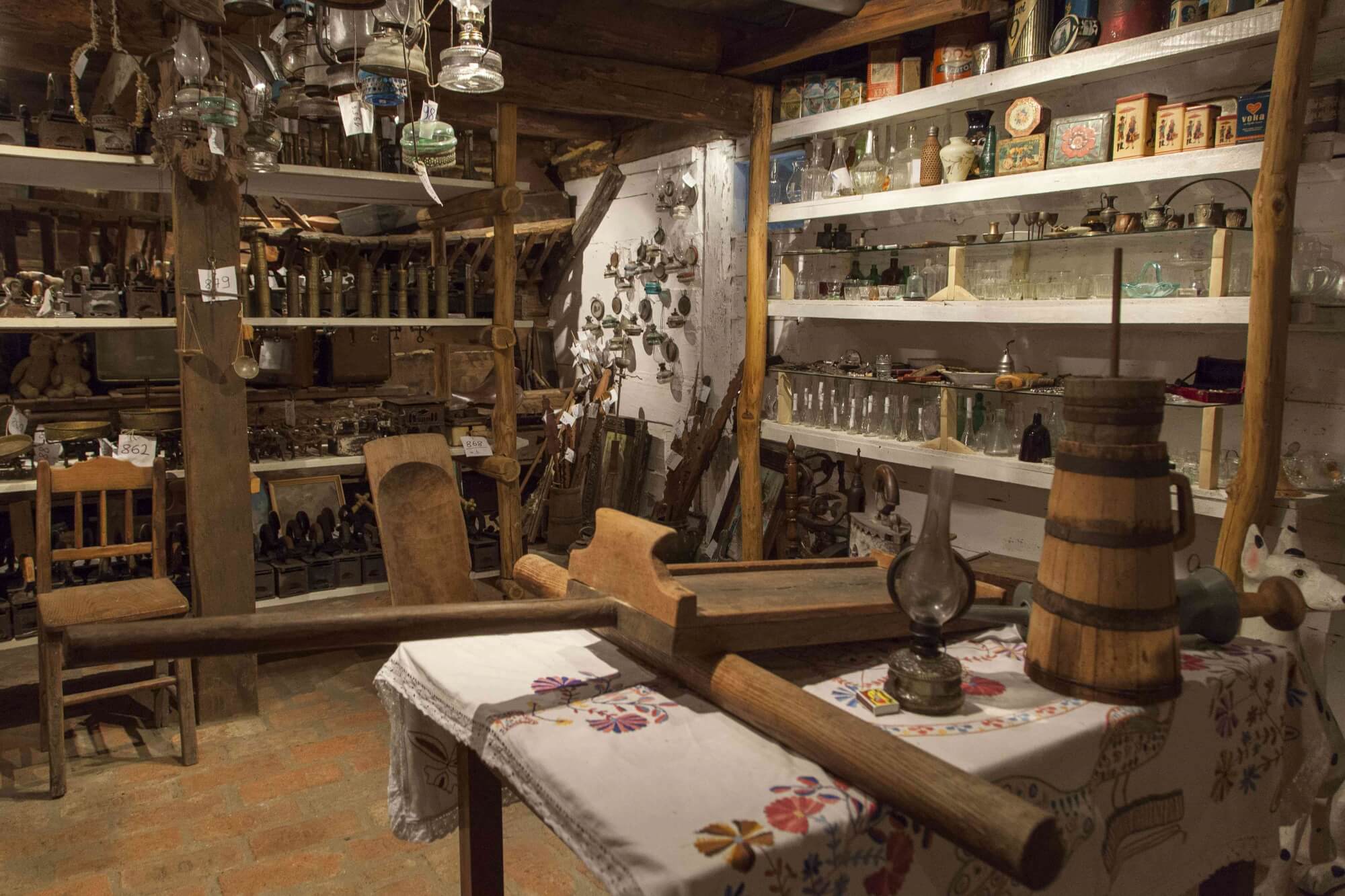 Kezele family farm ethno collection © Davor Konjikušić
Kezele family farm ethno collection © Davor Konjikušić
I've visited some family farms that were right at the start of their journey with Seoski Tourism and they seemed surprised that I was at all interested in what they do and how they do it. I think maybe they thought I was a bit crazy.
Yes, that is a response we sometimes also see at first. I think it's because our generation takes a lot of things for granted. We sometimes think that what we do is just what we do. We are not so good at showcasing it. “Why would I show someone how I make my cheese? I make my cheese like my grandmother used to make it” But, for those who open their doors to Seoski Tourism, inquiries about how they do what they do are only increasing. So, they seem to appreciate how we advise them in the workshops.
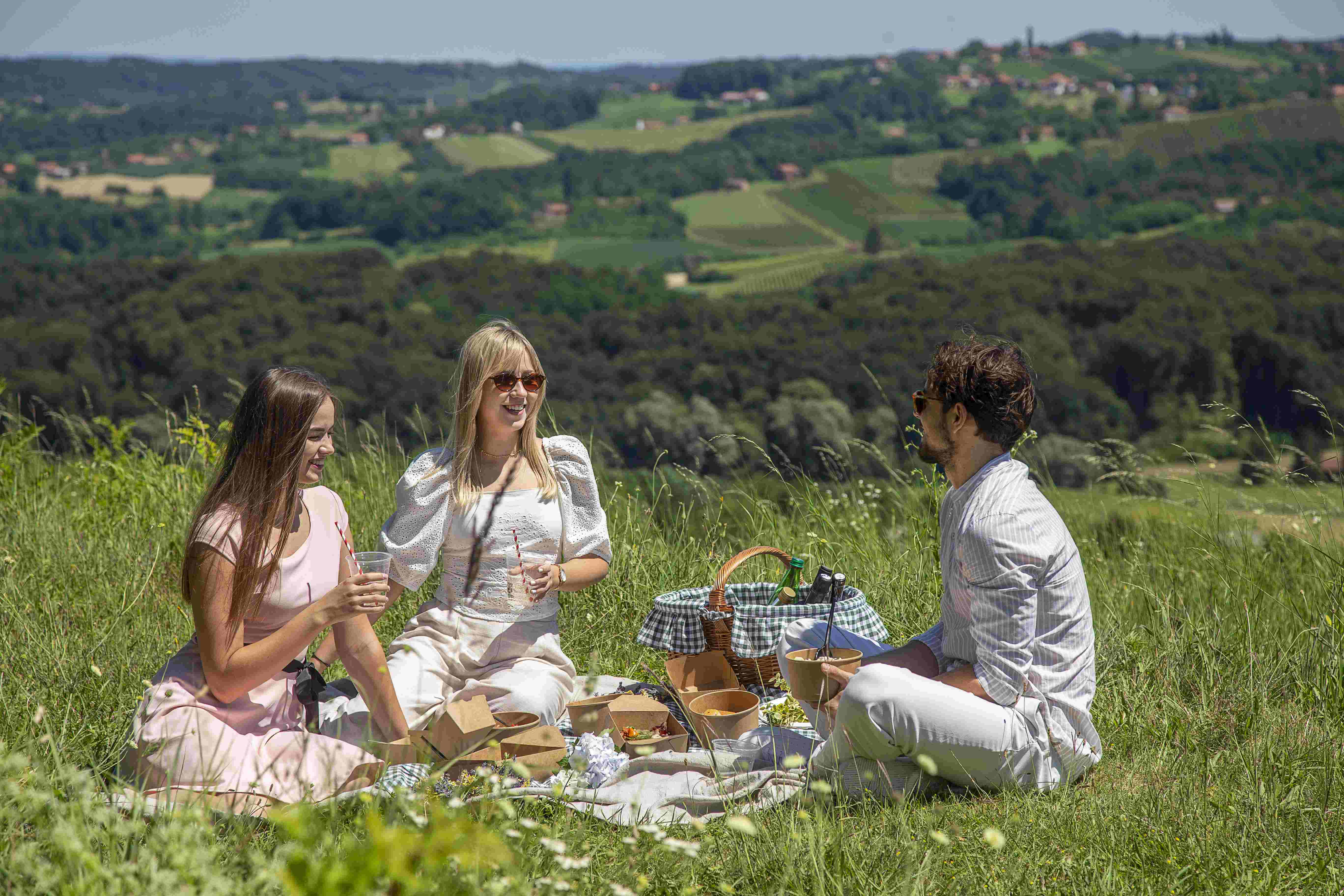 Picnic by Restaurant Međimurski dvori © Igor Nobilo
Picnic by Restaurant Međimurski dvori © Igor Nobilo
We are trying to let our producers know that Seoski Tourism is not just a platform to sell their produce and an overnight stay, but it's a full experience they can sell. There are agricultural farms in Austria that are established in tourism that you must pay only to visit. Of course, that doesn't happen currently anywhere in Croatia, even though some of our Seoski Tourism estates have sections that look like museums.
Some of these aspects are very new. And the feedback is great. I truly believe there are hidden treasures to be discovered in some Croatian villages. We are here to tell that story.
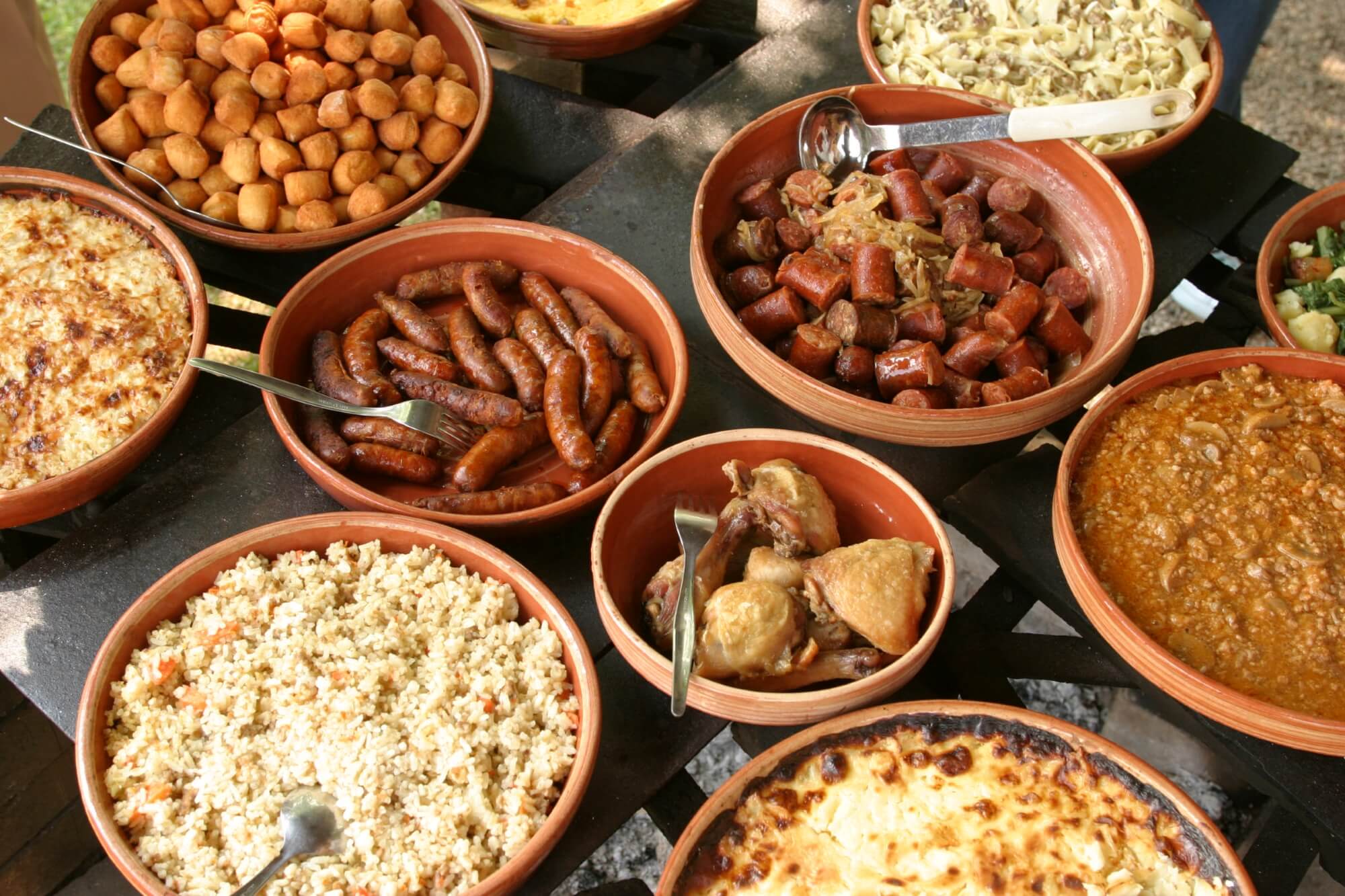 Selection of food from a Slavonian village © Mario Romulić
Selection of food from a Slavonian village © Mario Romulić
What is so rewarding about Croatian Seoski Tourism that international visitors would want to go to a traditional farm in some inland village instead of lying on the beach in Dalmatia for 14 days?
People come because they really want to see a different side of Croatia. And, there are many different aspects of Croatia to discover – not just Seoski Tourism, but also National Parks and Nature Parks. All of our current trends show us that more and more tourists are willing to come inland from the coast or to explore a different part of Croatia – inland Istria, for example, or continental Croatia.
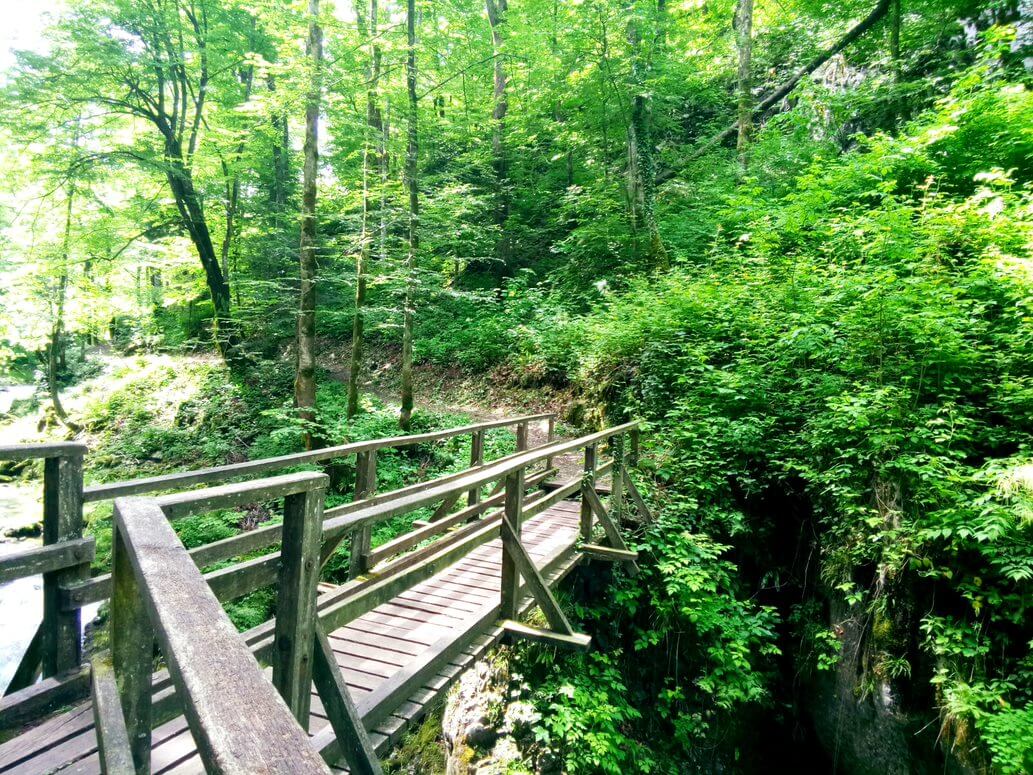 Kamačnik river canyon © Aleksandra Kuratko Pani
Kamačnik river canyon © Aleksandra Kuratko Pani
They really want to try authentic, local food. They want to eat healthy, to know what they are eating and how it is made. And, they want to experience flavours that are different from the usual ones they get from the supermarket.
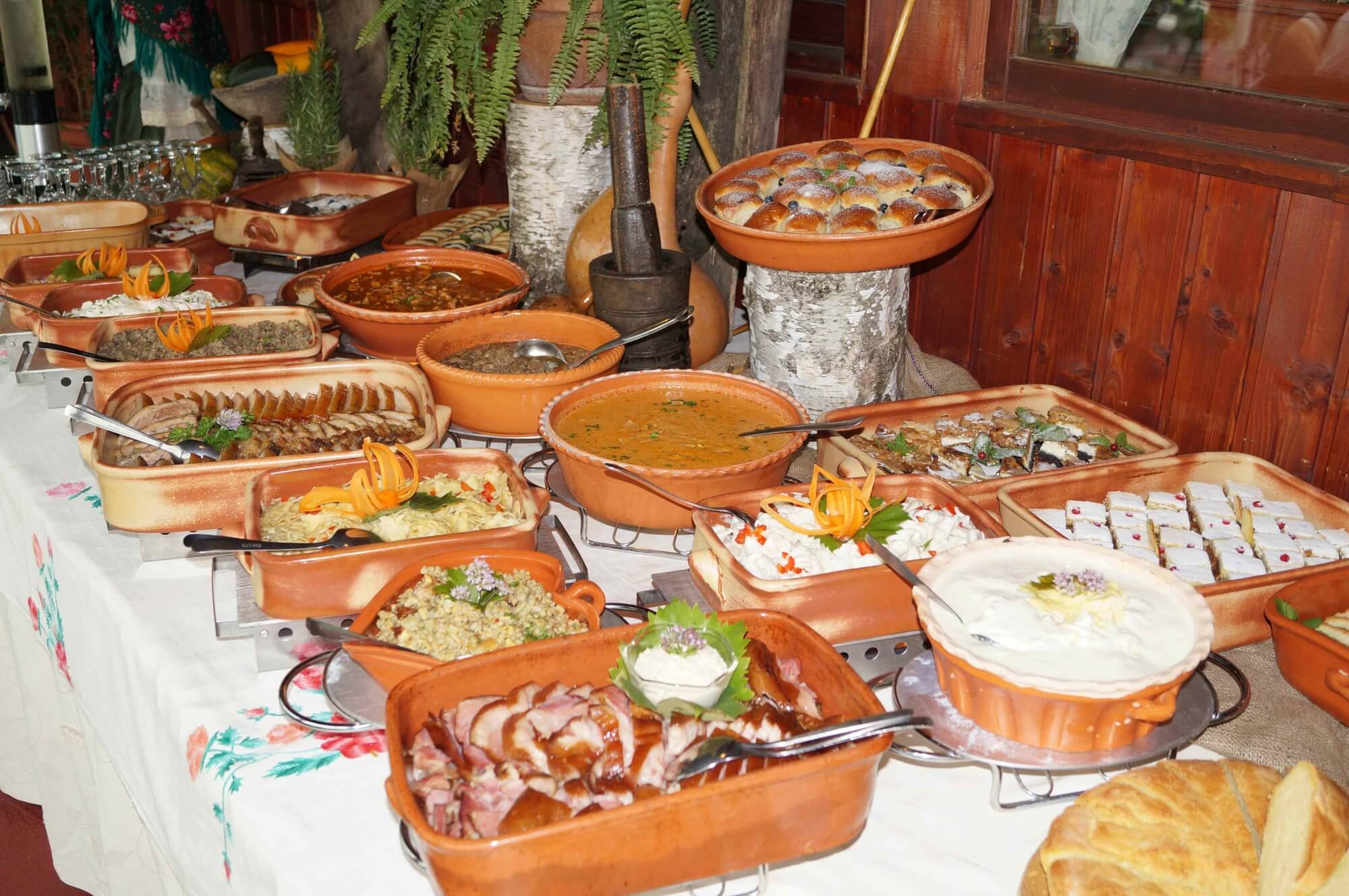 Traditional Međimurje table at Etno restaurant Međimurski dvori
Traditional Međimurje table at Etno restaurant Međimurski dvori
Also, I would say that with Seoski Tourism, people get to know better an authentic version of Croatia and its culture. It's a story we hear very often from our members. Some of them are visited by large groups from cruisers. These are people who might be on a cruise on the Adriatic and who journey inland for a day trip. Or, it might be a group who are cruising the Danube and disembark to visit a family farm in Slavonia, Baranja or Srijem.
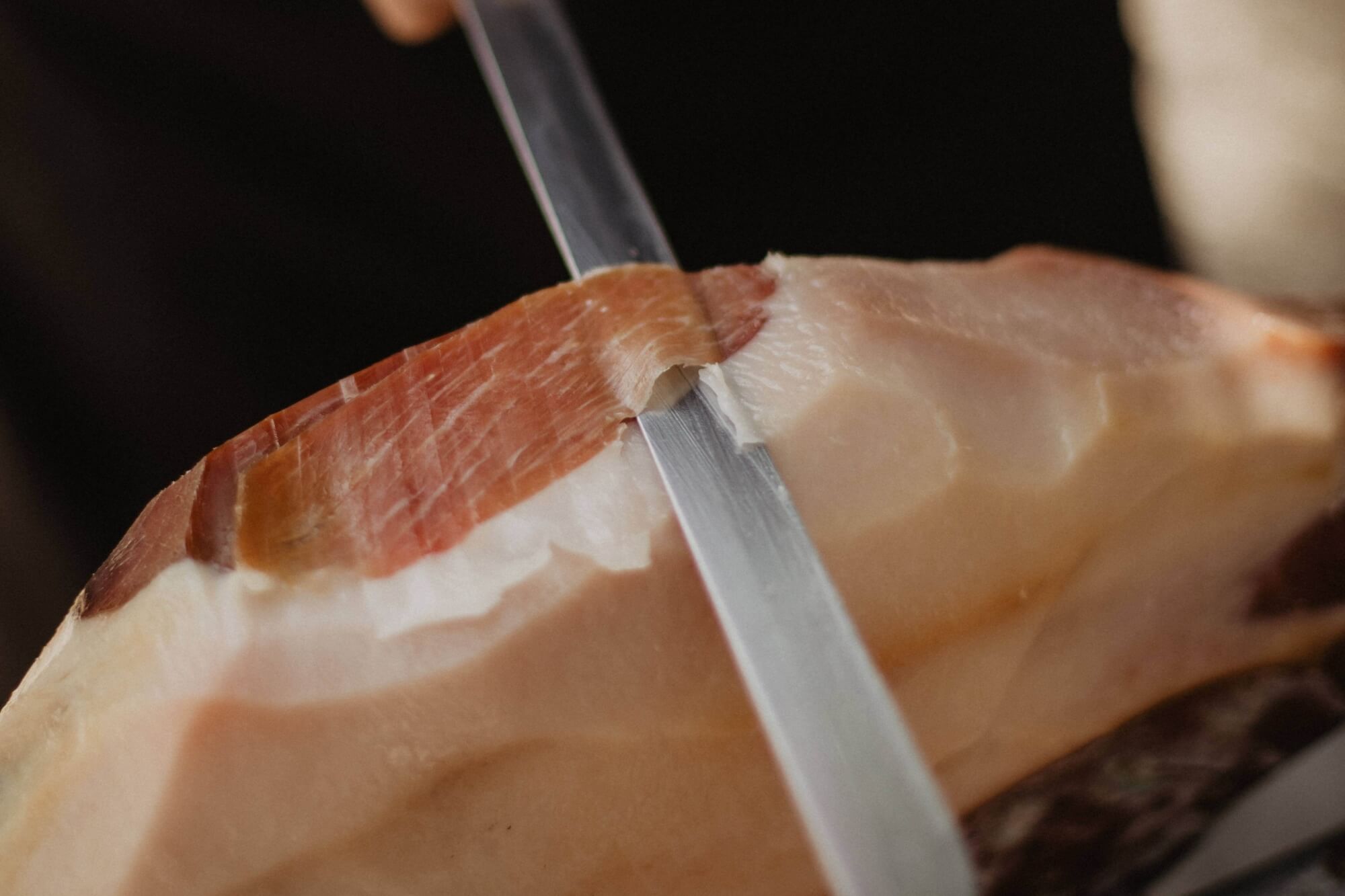 Prosciutto from Drniš at Agrotourism Kalpić © Ivana Kalpić
Prosciutto from Drniš at Agrotourism Kalpić © Ivana Kalpić
When they visit farming estates on day trips, it's very often a huge 'wow' moment for them. For many, in their minds, Croatia is simply sun and sea. And that's not entirely their fault. We, as a country, have done very little until now to promote alternative sides of Croatia. The visitors experience these wow moments because of the hospitality they receive and because of the tangible aspect of the visit. This is a modern aspect – people want to touch things, know how things feel, taste, smell. They want to ride on horses or feed them. Or take part in cultural activities. These parts of a visit to Seoski Tourism are very difficult to experience anywhere else.
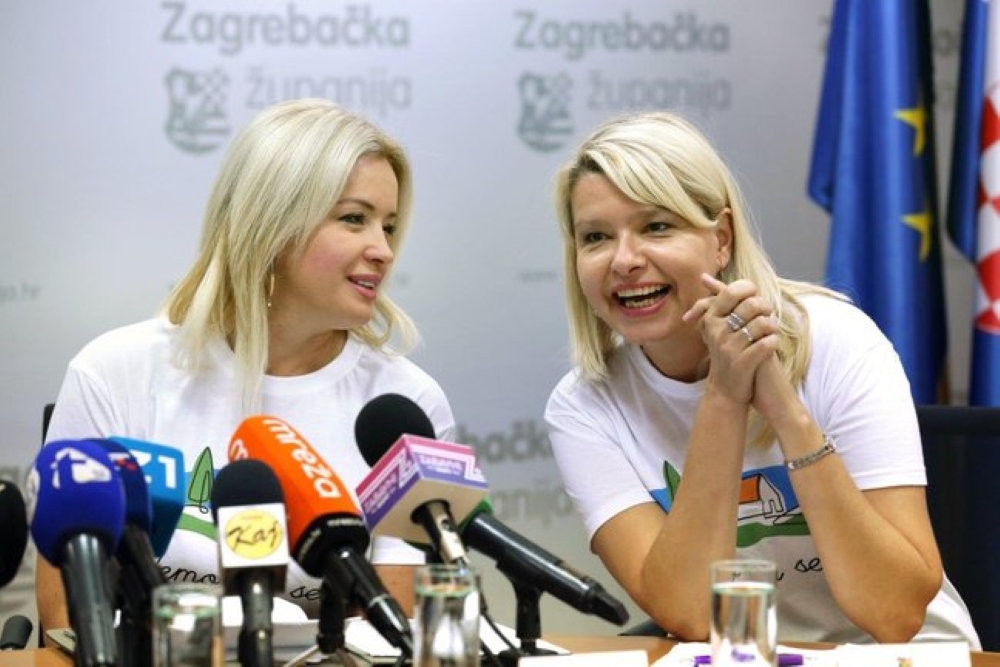 (left) Ivana Alilović, director of Zagreb County Tourist Board (right) Aleksandra Kuratko, secretary of Udruga ruralnog turizma Hrvatske (Croatian Rural Tourism Association) © Zagreb County
(left) Ivana Alilović, director of Zagreb County Tourist Board (right) Aleksandra Kuratko, secretary of Udruga ruralnog turizma Hrvatske (Croatian Rural Tourism Association) © Zagreb County
Udruga ruralnog turizma Hrvatske's online Seoski Tourism workshops begin today and their physical workshops continue next week in Istria.
If you'd like to read more about rural tourism in Croatia, then look here
Croatia Seeks Two Suspects Involved in 1991 Killings of Civilians
ZAGREB, 28 April, 2021 - An international arrest warrant has been issued for a 78-year old Croatian citizen Dragan Bešir and 79-year old Serbian national Slobodan Đorđević for murders committed in 1991 and shelling a refugee camp in Grabovac where a three-month old baby was killed.
The charges have been forwarded to the County State Attorney in Rijeka after Lika-Senj and Karlovac county police authorities in cooperation with prosecutorial authorities completed the criminal investigation, the police has reported without revealing the identity of the two suspects.
The suspects are out of reach of Croatian judicial authorities. They are charged with failing to prevent the murder of civilians between 8 October and 10 November 1991 and in that way violated international laws during war conflicts.
Both Bešir and Đorđević were commanders of the then Yugoslav People's Army (JNA), and they did not do anything to prevent the murder of 35 civilians.
In addition, Đorđević is charged with not preventing a mortar attack on a refugee camp at Grabovac which resulted in the killing of three civilians including a three-month old baby, who was the youngest victim during the Homeland War.
Zadar: Contracts For Social Entrepreneurship Worth HRK 10 Million Presented
ZAGREB, 12 March, 2021 - Labour Minister Josip Aladrović and deputy director of the National Foundation for Civil Society Development Luka Bogdan presented eight contracts in Zadar on Friday worth nearly HRK 10 million for projects to strengthen the capacities of old and new social enterprises and entrepreneurs.
"Today, we signed contracts with entities that are just starting and that are developing their business in accordance with principles of social entrepreneurship," said Labour, Pension System, Family and Social Policy Minister Josip Aladrović, noting that the ministry has provided over HRK 112 million to encourage social entrepreneurship.
The pandemic and crisis have created an opportunity for doing some things better and fairer, he said.
I believe that we can find a way in our business to regain a positive social impact. There are four counties among the co-signers: Zadar, Šibenik-Knin, Split-Dalmatia and Lika-Senj counties. All forms of entrepreneurship in these areas are more important than ever before, mostly due to the impact the pandemic has had on the tourism sector and all related activities, Minister Aladrović said, adding that by signing the projects they want to strengthen the capacities of old and new social enterprises through additional employment and education.
Deputy director of the National Foundation for Civil Society Development Luka Bogdan said that social entrepreneurship was one of the models connecting solidarity and entrepreneurship that could be seen every day, not just in a crisis.
The purpose of the projects is to employ members of vulnerable groups -- women, Croatian war veterans and victims of the Homeland War, people with disabilities and others, and this will include creating new jobs and improving the knowledge and skills of employees through specialised forms of training and employment.
Before presenting the contracts cofinanced by the European Social Fund, Minister Aladrović and his associates had a working meeting with representatives of the City of Zadar on increasing capacities of retirement homes.
According to state secretary Marija Pletikosa, it is estimated that about 5% of the population aged over 65 needs accommodation in a retirement home, and Zadar has not yet reached the capacity to accommodate 3%, so it is necessary to build new retirement homes.
Aladrović said that he supported the idea because increasing the number of accommodation units for the elderly population across Croatia was one the priorities of his ministry.
For more about business in Croatia, follow TCN's dedicated page.
LiPO Regional Party Established
ZAGREB, Dec 13, 2020 - A new regional party, called LiPO, was established in Lika-Senj County on Saturday, and its leader, county head Darko Milinovic, said that with 1,500 members it was the strongest regional centre-right party in Croatia.
Milinovic said the party's statute, adopted today, allowed for the formation of factions.
The party's name, LiPO, is an acronym formed from the initial letters of the names of the regions that constitute Lika-Senj County - Lika, the Croatian Littoral and islands.
Milinovic said that the founding assembly was held at six locations in Gospic, Otocac, Novalja and Senj due to epidemiological restrictions.
With some 1,500 members, LiPO is the strongest regional centre-right party in Croatia, and the second strongest regional party after the IDS, with more registered members than Bridge, GLAS, We Can! and the HDSSB, which have deputies in the parliament, said Milinovic.
Deputy party leader Ante Dabo, the mayor of Novalja on the island of Pag, said that LiPO would be an inclusive regional party and a partner to the government.
Tourism Professionals from Lika-Senj and Karlovac Counties Optimistic about 2021
November 13, 2020 – Tourism professionals from Lika-Senj and Karlovac counties expressed optimism about next year in their area, but also in Croatia as a whole.
As Hina reports, the panel "What about (corona) tourism in 2021?" was held on Thursday, November 12 2020 as part of the 6th regional forum of family accommodation in Karlovac, which was organized with partners by the Family Tourism Community Section for the Lika-Karlovac region at the chambers of Karlovac and Otočac.
Panelists presented their views on the next tourist year and this year's experiences, which they described as "a good lesson from which much could be learned and prepared for the future."
The owner of the hotel and winery Boškinac from Novalja, Boris Šuljić, rated this year as one of the most challenging in tourism, but also for him as an entrepreneur. However, he added that at the beginning of the spring closing, they managed to keep all employees and use the time to work on the company's progress.
"That's why we had a very successful season this year, but as trends change and regardless of corona, we still have to constantly adjust. I am optimistic about 2021 and I believe that flights, maritime traffic, and car tourism in the full profile will be established to a greater extent," said Suljic.
He also believes that everyone in tourism should be well prepared for next year, and that "the difficult experience from this year should be a guide". He also said that "the most important thing in tourism is to deliver high quality".
"We are already working hard on new dishes and we believe in the classic continuation of our business and a return to the 'old normal'," said Šuljić.
Krešo Rogoz, director of the Croatia Open Land DMC company from Karlovac, is also optimistic for next year, saying that after stopping all plans, they used this year to search for new resources, but also to prepare a different, more individual tourism for smaller groups.
"It's also interesting that we raised prices and thus got smaller groups that accumulated more money. The key is to team up, collect additional content and excellence, and we all hope for a normal spring and base our plans on car tourists," said Rogoz, who believes that it is time to jointly devise how to brand destinations to be even more recognizable in the tourist markets.
The director of the Homeland War Museum in Karlovac, Hrvojka Božić, notes that this year they used digital channels a lot to bring back visitors, which they succeeded in doing, and in the summer months they had about 80 percent of last year's attendance.
They are optimistic about 2021, believing in the power of community collaboration and networking of stakeholders within the destination, as well as in the development of content tailored to individual visitors and smaller groups.
Although they had only 25 percent of last year's overnight stays this year, Rakovica Deputy Mayor Mihovil Bićanić also hopes for a speedy recovery.
"We believe in stabilization in 2021, in which we should additionally focus on domestic tourists and on raising awareness about the offer of continental tourism, in which there is still a lot of room for additional content and strengthening quality," concluded Bićanić.
For the latest travel info, bookmark our main travel info article, which is updated daily.
Read the Croatian Travel Update in your language - now available in 24 languages.
Milanovic Wishes Lika Residents Wealthy Lives
ZAGREB, October 2, 2020 - During a visit to the Lika region on Friday President Zoran Milanovic opened the Autumn in Lika commercial tourism event and said that Lika-Senj County has beautiful and rich land, unbelievable resources, wishing its residents wealthy lives and for everyone to be envious of them.
Recalling his own family roots which are partly from Lika, Milanovic said that the fact that this large county has only 50,000 residents "is not a drama or a call for alarm," but that they should be able to use their resources and live a nice and rich life.
"The food you offer and sell has quality and means living and earning. Your potatoes are produced in all of Europe and are excellent. It is not valued enough as a product on the market and should be more expensive. That needs intelligence, assertiveness, boldness and stubbornness and then success isn't far at all," he said.
Picky tourists don't choose the Alps but Lika
He added that picky people are no longer choosing the Alps for their recreation but Lika and the area around Gospic and Otocac.
"Important things are happening here. You have all the preconditions to be competitive and that these 50,000 people live in wealth and for themselves and not like my ancestors for Austria or some other army. Keep your own. That need not be narrow minded or nationalistic, but open," he said addressing exhibitors, describing their products as the "window to the world and a bag of money."
Despite unfavourable conditions agriculture has increased by 3.9%
Listing various incentives, Agriculture Minister Marija Vuckovic said that investment funds were improving from tender to tender and the money invested was becoming more and more effective, adding that despite the unfavourable circumstances Croatia's agriculture had increased by 3.9%.
For the latest travel info, bookmark our main travel info article, which is updated daily.
Read the Croatian Travel Update in your language - now available in 24 languages


